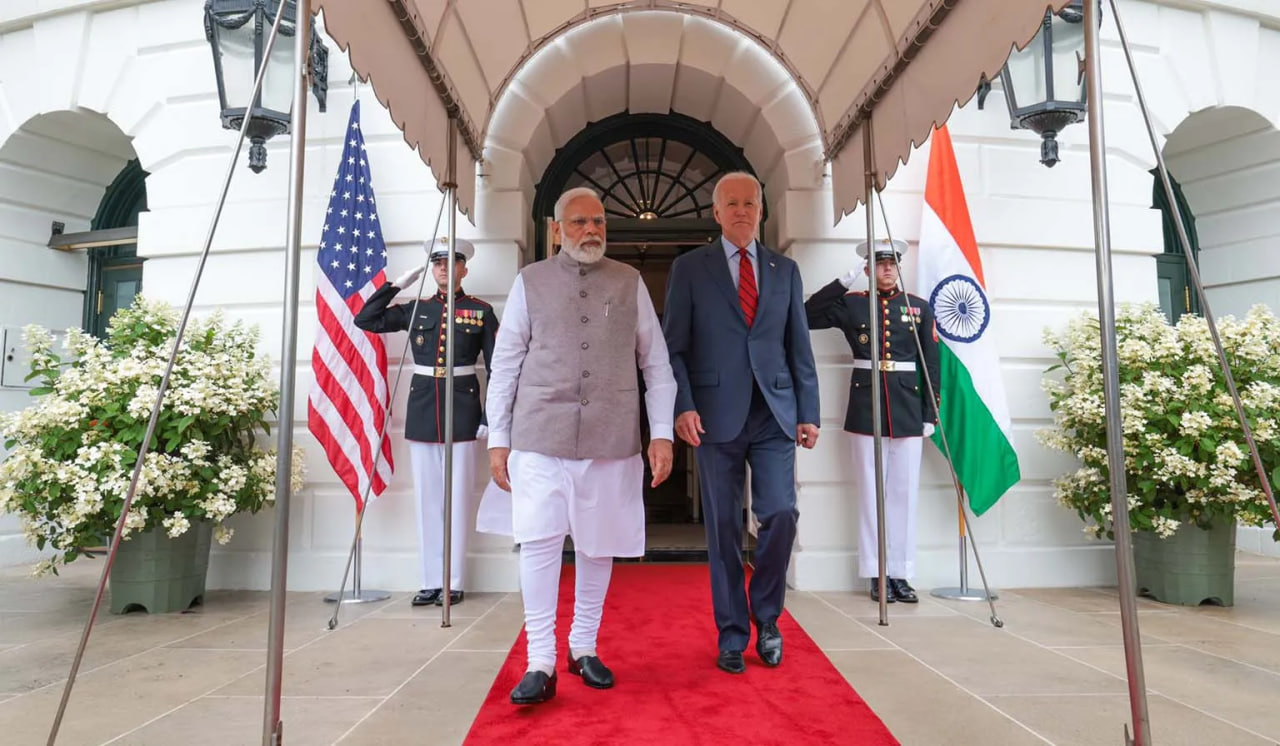Visit wrap-up: On PM Modi’s U.S. visit, announcements
The Modi U.S. visit announcements will see New Delhi being put to the test
Prime Minister Narendra Modi’s three-day visit to the U.S was marked by high-level meetings that had a three-part focus. He spent one day at the Quad and in bilateral meetings with U.S. President Joseph Biden, a day in New York with business leaders and the diaspora, and another day at the UN and in bilateral meetings. The Quad Summit, delayed due to political cycles in the four member countries, was more substantive than expected for a farewell meeting (Mr. Biden and Japan’s Fumio Kishida will soon demit office). The joint statement was noted for its sharp language on Chinese aggression in the South China Sea, as well as on Russia’s invasion of Ukraine, where the leaders upheld the UN charter on sovereignty and territorial integrity. The announcement of initiatives aimed at countering Chinese actions will no doubt raise Beijing’s ire: a “Quad-at-Sea Ship Observer Mission” for 2025, a Maritime Initiative for Training in the Indo-Pacific (MAITRI) and a “maritime legal dialogue” to support the “rules-based order”. However, India’s hesitation in joining other Quad militaries in contested waters in the Pacific Ocean remains, and India’s presidency of the Quad next year will show whether those are overcome. Quad countries also committed to a “Cancer Moonshot” to fight cancer, an initiative that can draw lessons from the troubled Quad vaccine initiative. India and the U.S. were able to announce progress on many strategic fronts including a military partnership for semiconductor fabrication and India acquiring predator drones. However, the ties faced unspoken tensions over the lingering effect of the Pannun case, including summons issued for NSA Ajit Doval in a civil suit and a White House meeting with Sikh activists who have campaigned against India — all before Mr. Modi’s arrival. The message from Washington appears to be that the Pannun case cannot be overlooked.
Mr. Modi’s message at the UN as well as in bilateral meetings with leaders including Ukrainian President Volodymyr Zelenskyy was watched closely given recent moves hinting at India’s involvement in a peace process. While Mr. Modi gave no further indication of such a plan, his discussions with Mr. Zelenskyy centred around a possible second peace summit. At a diaspora event, Mr. Modi said that India is now a “strong voice” of the Global South, and was taking up the concerns of the developing world on the conflict with the global leadership. At the UN “Summit of the Future”, he added that the success of humanity would depend on its “collective strength, not in the battlefield”. The next few months will see New Delhi tested not only on those lofty ideals and ambition for peace but also on actualising the many announcements made during the visit.
